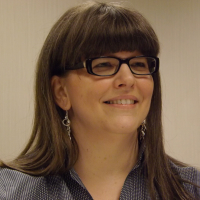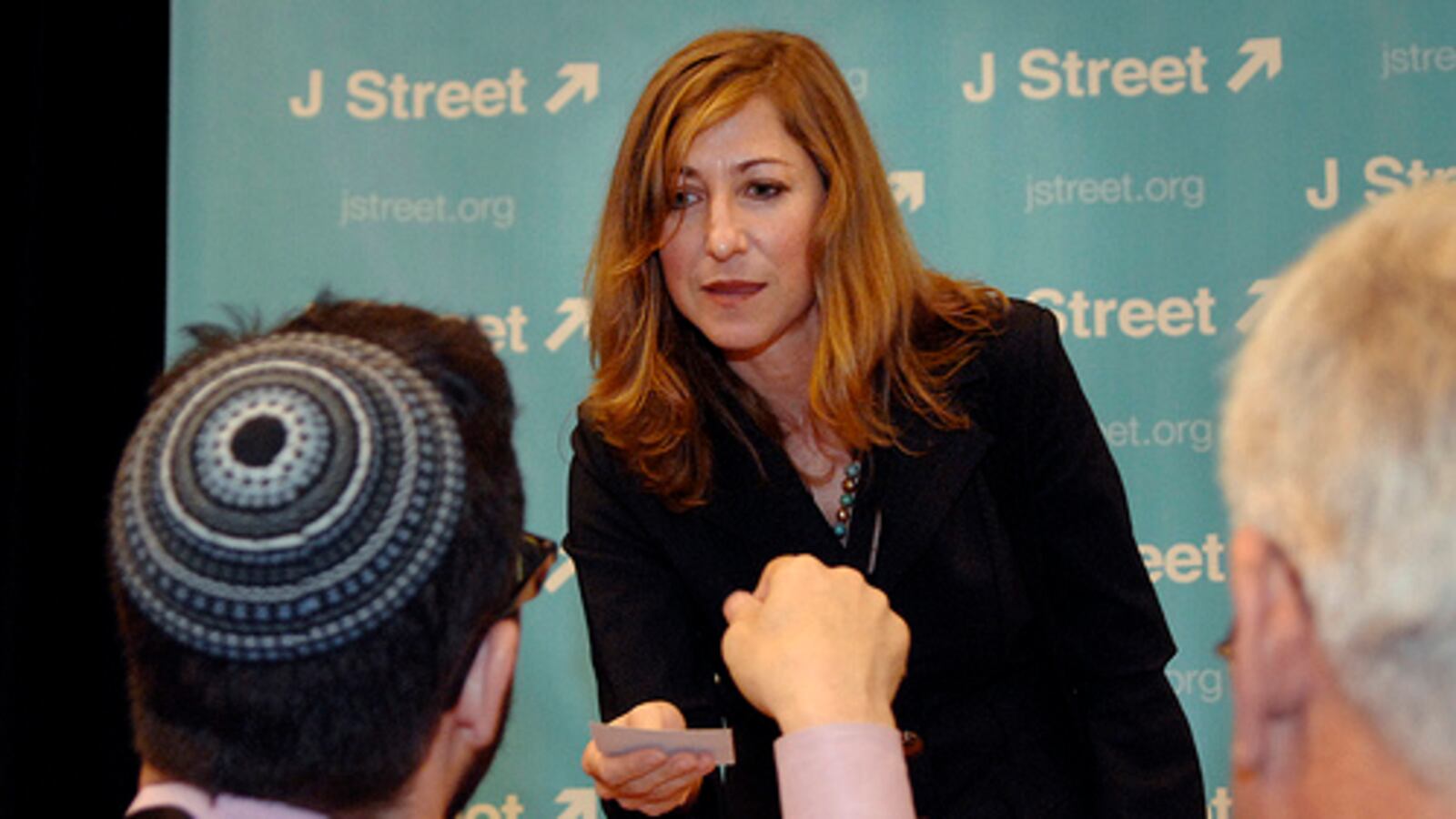I spoke with many (many) people at the recent J Street conference; middle-aged activists, rabbis of various ages and stages, college-aged-or-just-barely-not-college-aged young men and women of exceeding intelligence and remarkable vision. One of the topics to which many conversations turned, again and again, was the question of Jewish identity.
While not a perfect metric (and it’s important to remember that anecdotes are no replacement for research) it’s worth noting that there were far more kipot in the crowd this time than at any other J Street gathering I’ve ever attended. There were more tziziot. A few speakers even went beyond passing reference to tikkun olam (which, nothing against tikkun olam, but settlers think they’re doing tikkun olam, too). And I was told by people from all over the religious spectrum (as I have been in the past) that the very fact of J Street (or, before it, Brit Tzedek v’Shalom) allowed them to revisit and re-engage with their Judaism.

Which brings us, a little circuitously, to the recent Pew Research poll.According to Pew, 73 percent of American Jews say that “remembering the Holocaust” is “an essential part of what being Jewish means to them,” whereas only 28 percent can say the same about “being part of a Jewish community.”
Though I hold Pew Research Center in high regard, my sense is that the construction of this survey is not without problems (for instance: What’s the difference between having “an emotional attachment” to Israel and “caring” about Israel? Why was the only question about settlements linked to security?)—but even if we posit the poll as an imperfect tool, imperfection can only go so far in explaining the vastly greater import Jews appear to grant Holocaust remembrance over involvement with other Jews. Forty-five percent is not a small number. We can’t even chalk it up to generational differences: Among 18-29 year olds, the stats stand at 69 percent vs. 26 percent.
Let me be perfectly clear: Holocaust remembrance is a critical Jewish act. It’s a critical human act. The calculated, mechanized effort to rid the world of an entire race of people—man, woman, and infant—because of the blood in their veins is not something that we may ever pass over lightly. We must study the events of the Nazis’ rise and rule, as well as the ideas behind the Final Solution, and we must honor the six million by recalling their lives and their culture. This is part of how we ensure the promise we make every time we say “never again.”
And yet surely it matters that we not only remember dead Jews, but also get to know some living ones. Even if our main goal is to “remember the Holocaust,” surely it matters that we find personally meaningful ways to engage with the very culture that the six million were slaughtered for.
They weren’t all religiously observant; some rather famously didn’t believe in God. I don’t know how many actually understood the language of our prayers, but I’ll bet a fair number didn’t. They argued over theology and how to stage a play and what a good education entailed and whether or not that one guy’s jokes were funny. The six million and their various communities were, in short, like any other modern people: Vastly different from one another, yet also bound by something real, however difficult to quantify.
Ever since sometime in the 1950s, however, when it became popular across much of American society to be suspicious of anything that was difficult to quantify, the Jewish community has emphasized “Holocaust remembrance” over and above almost anything else (with the possible exception of “caring about Israel”). The late, great scholar Peter Novick explained and sliced through the Holocaust rhetoric, but few really listened; it was easier, I suspect, to teach solidarity based on horrifying memory than on the ineffable nature of culture or faith. The kids in Hebrew school might not buy your whole “God” schtick, but show them a picture from Dachau and you’re in.
Quite aside from the dishonor this brings to all we lost, there’s the simple fact that horror is not culture. “Remembering” is not heritage. And the Jewish people—those rich in Torah and those rich in good deeds, believers and unbelievers, prophetic comic artists and hip hop poets, not to mention folks just getting by—have so much more to offer.
Which brings us back around to the J Street conference. The rabbis, the J Street U enthusiasts, the parents sharing tales of synagogue preschool, they all remember the Holocaust, they all care about Israel—and they all care about what being a Jew entails. All of that brought them to the conference in the first place. All of that is why they risk identifying with an organization that cares enough to question institutional Judaism’s long-held conventional wisdom on what being a good Jew means.
Every person with whom I spoke about re-engaging with their Judaism had something different in mind. Maybe they meant focusing on spiritual practice rather than on the brinksmanship of a particular set of politicians in a modern-day nation-state. Maybe they’re writing a dissertation on the impact of Jewish culture on American music. Maybe they’re reading this blog because Open Zion strives to advance the kind of open debate that was once a hallmark of Jewish thought. Maybe they decided to spend a weekend with other Jews in the Washington Convention Center and act for peace with the Palestinians.
I’m a woman of faith; I speak and read Hebrew. It’s easy for me to be active in a Conservative synagogue. But for many, many Jews, that’s neither easy nor even appealing. Nor, would I argue, does it have to be.
But being with Jews, building something of meaning based in our past with an eye on our future—that’s essential. Whether it be J Street, or Jewish poetry slams, or something like LABA, New York’s non-religious house of study, we need to find, foster, and encourage all that will help us remember not just horror, but also joy.
Basing our identity in dreadful narratives of death and survival, and/or an amorphous “caring” about a country that’s an ocean away (essential to 53 percent of Jews aged 65 and up, and only 32 percent of 18-29 year olds) is a path to failure. Indeed, if that’s all we care about, I’d say it already has failed.
But basing our identity in each other? That could actually work.





